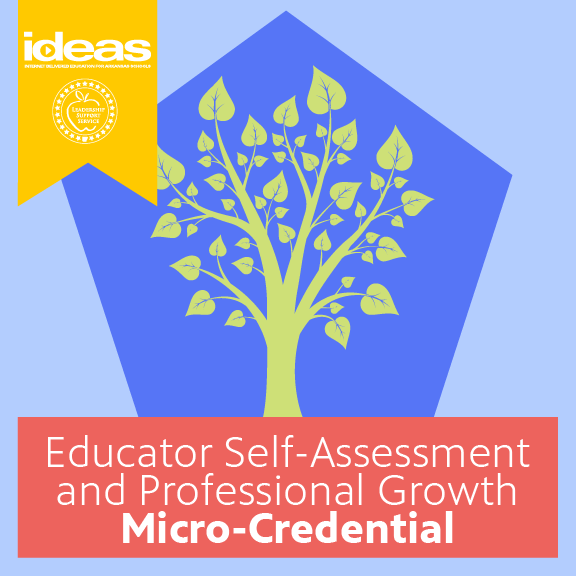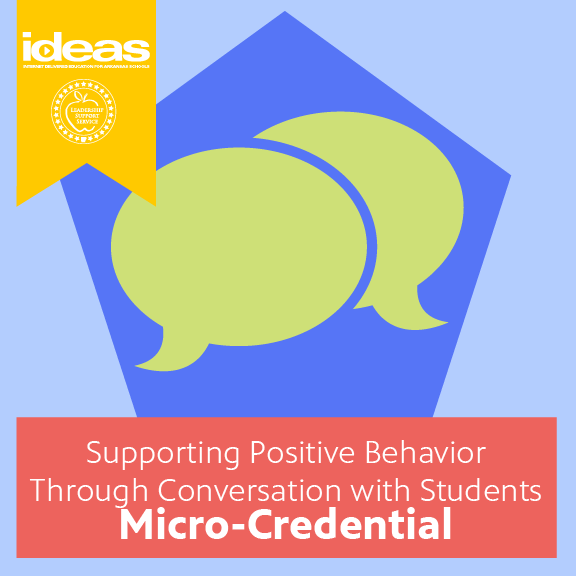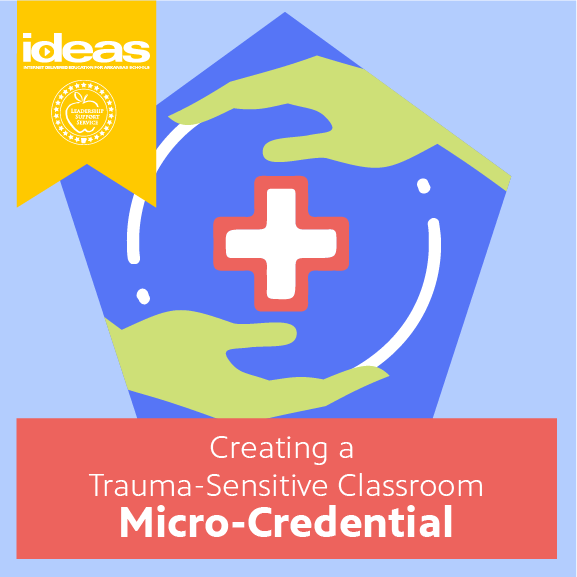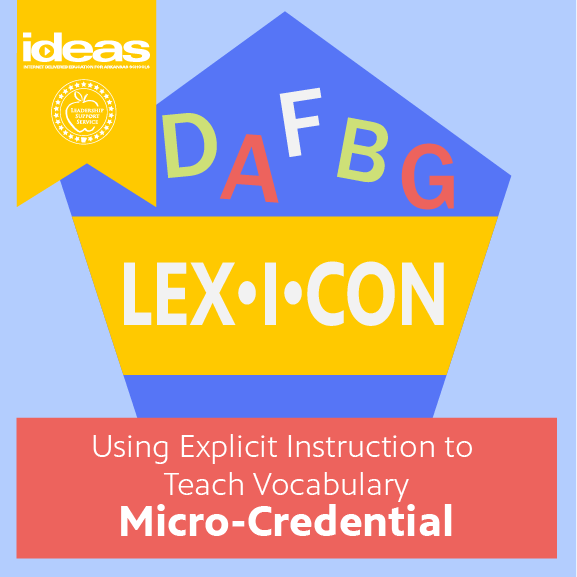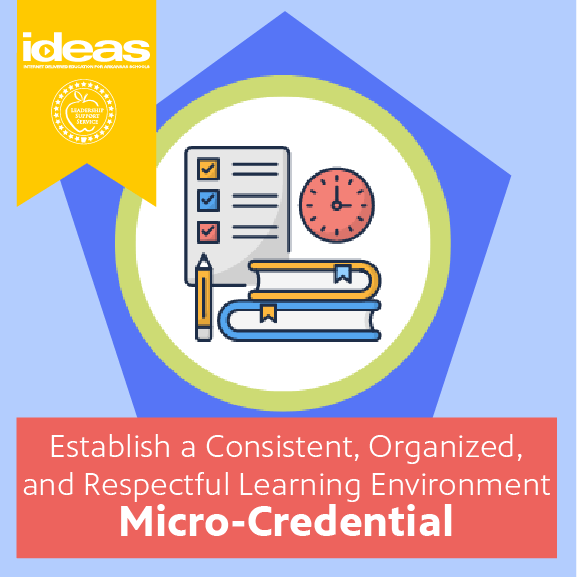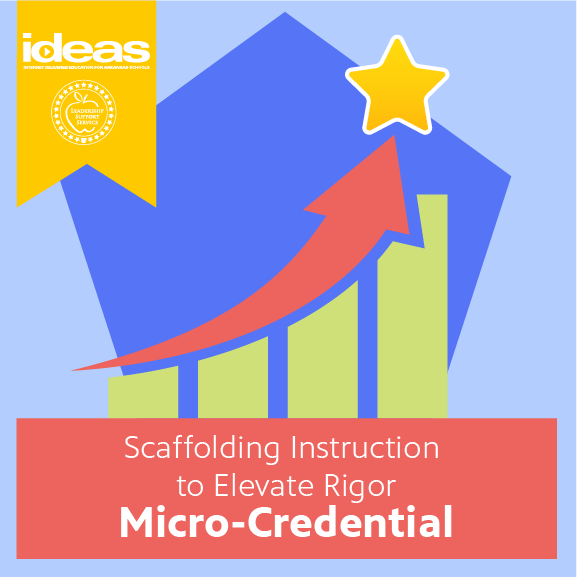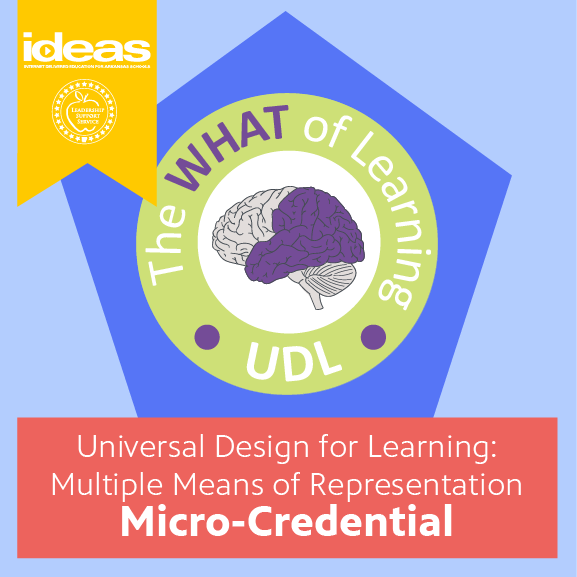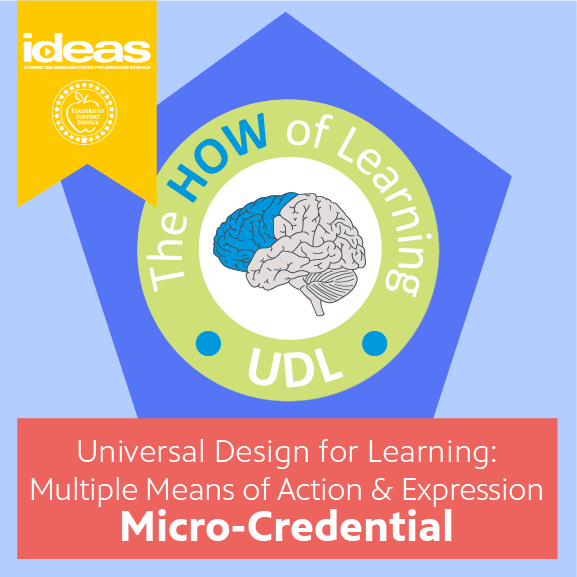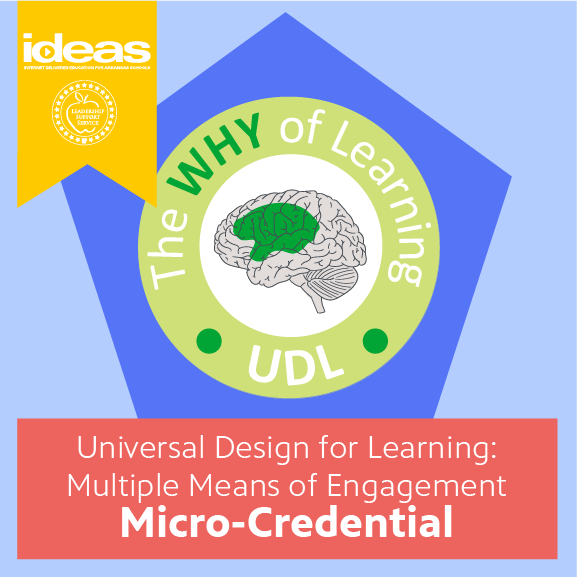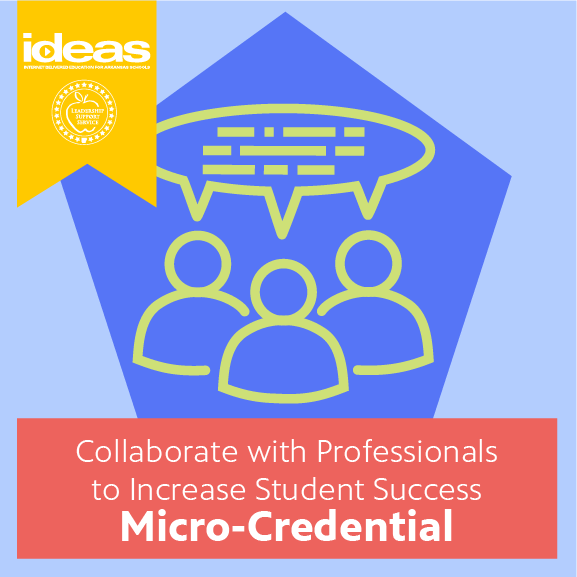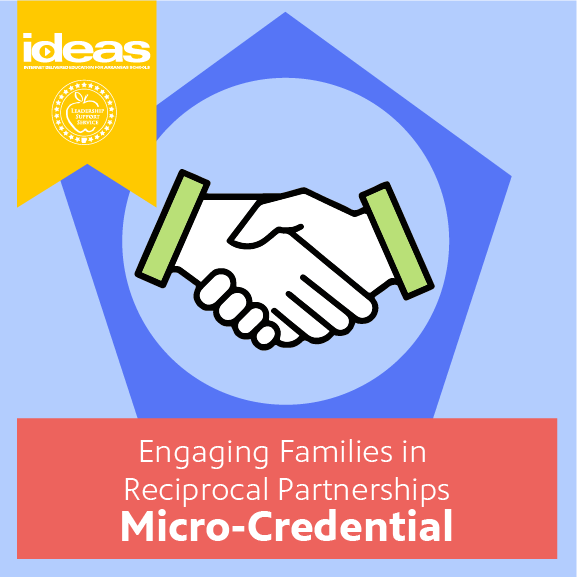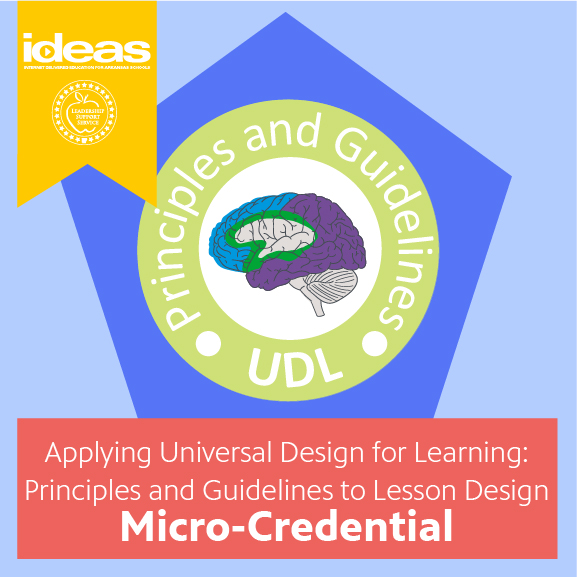Micro-Credentials
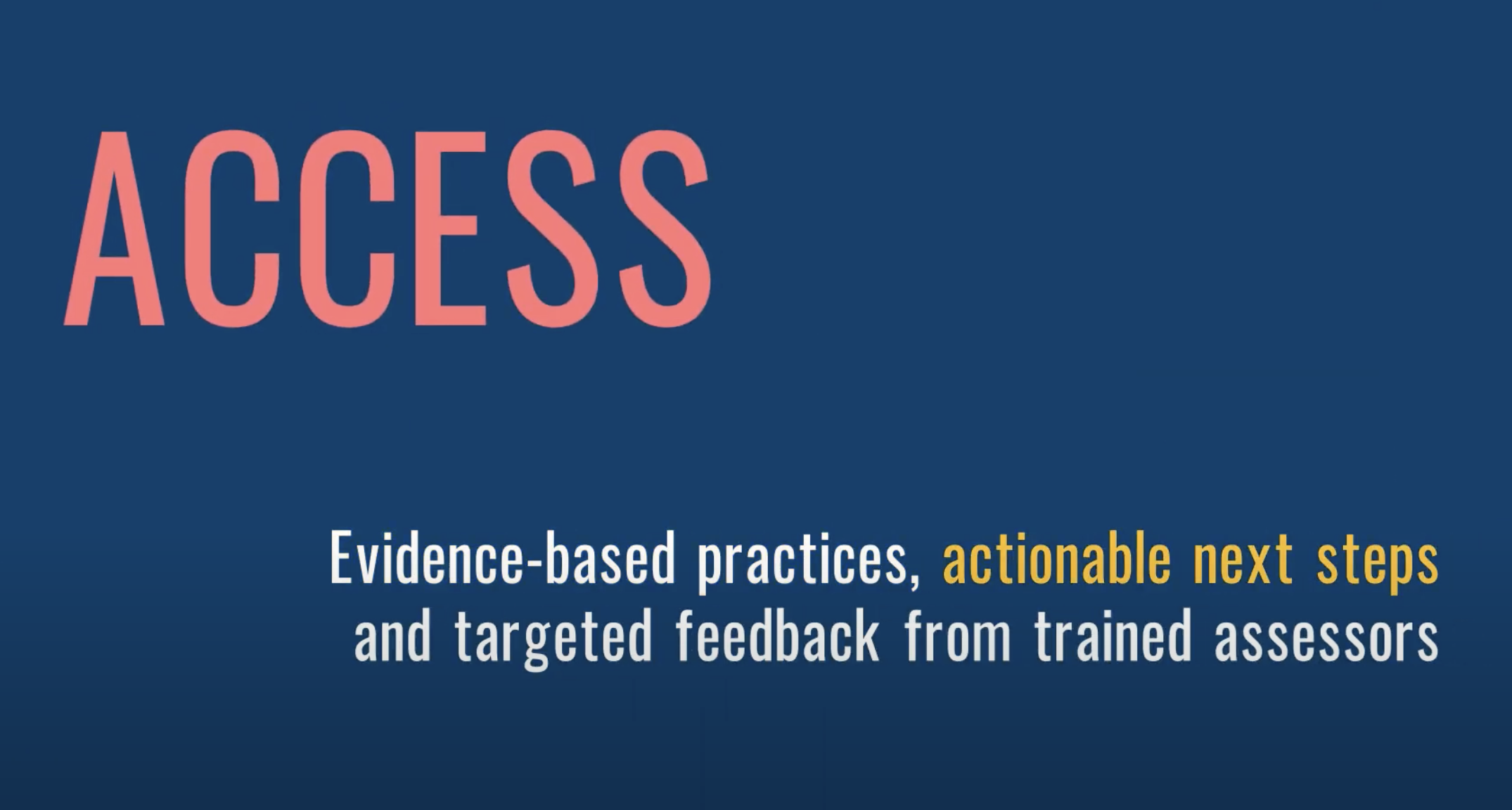
Get recognized for your growth as an educator
ArkansasIDEAS and the offices of Educator Effectiveness and Licensure have partnered to offer micro-credentials for educators in Arkansas. This personalized, competency-based professional learning helps you improve a discrete skill over time. The rotating schedule has a limited number of seats, so enroll as soon as you're interested!
Frequently Asked Questions
-
What is a micro-credential?
A micro-credential is a competency-based certification of a discrete skill. Micro-credentials are not bound to "seat time" requirements like many forms of professional learning, but rather micro-credentials are professional learning embedded into the day-to-day clinical application of the earner's work setting making them personalized, self-directed, and self-paced.
-
How do I earn a micro-credential?
An earner will select a micro-credential based on the specific skill he or she wishes to demonstrate. The micro-credential describes the exact skills the earner will demonstrate, the tasks the earner will complete, and the artifacts the earner will submit as evidence that the skill has been mastered through the completion of those tasks. The micro-credential includes basic information the earner will need to know as well as links to scholarly research, peer-reviewed articles, and classroom-friendly resources that allow the learner to go as deeply into the topic as he or she wishes. After the submitted tasks have been evaluated by an assessor, the earner receives feedback asking for clarification or additional evidence or congratulating the earner for the successful completion of the micro-credential.
-
How much do micro-credentials cost?
Micro-credentials offered through ArkansasIDEAS are free of charge.
-
How much time does it take to complete a micro-credential?
The time it takes to earn a micro-credential depends on the amount of time it takes the earner to demonstrate the competency. Validating an existing skill may take less time than learning and demonstrating a new skill. Micro-credentials also vary in "grain size" or the number of tasks the earner is asked to complete, so the time requirement may vary from a few days to a few weeks.
-
Will I receive professional development credit for earning a micro-credential?
The Division of Elementary and Secondary Education encourages the use of micro-credentials as professional learning to support a teacher's professional growth plan and target growth goals. As with all professional development, teachers should seek approval from his or her administrator before earning a micro-credential to ensure that professional development credit earned for completion of the micro-credential will be accepted by his or her school district.



